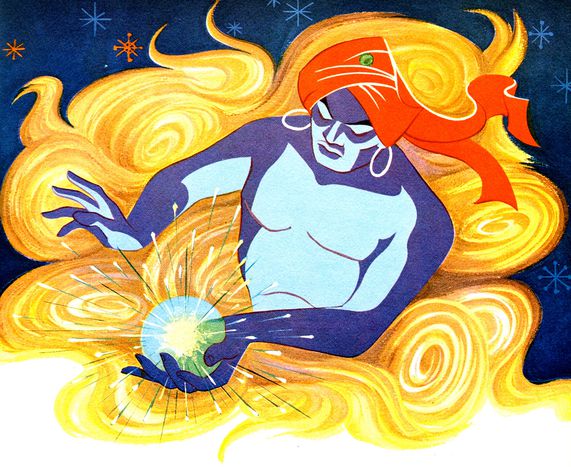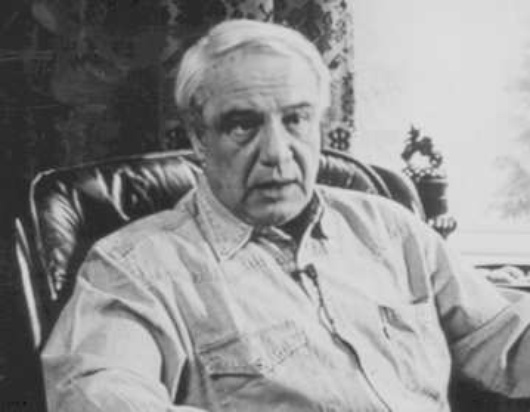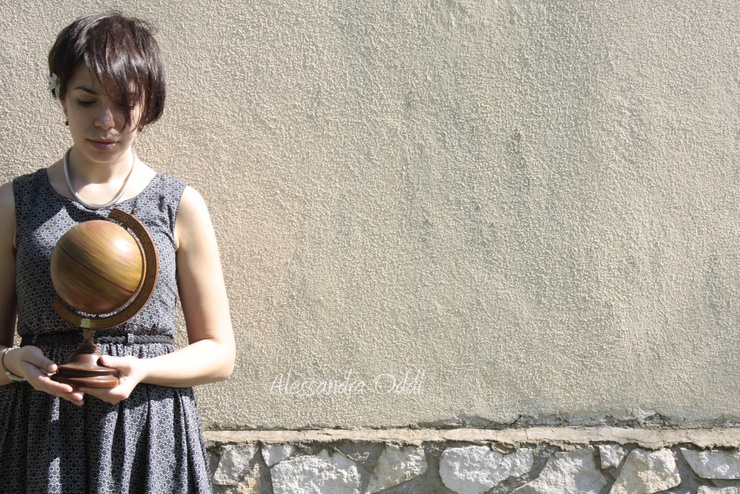
European Union - similar to Soviet Union?
Published on
On 9 May the EU celebrates Europe Day. What do we have to celebrate? The EU is a bold and unique project. It's hard to find historic models. Its approach resembles less that of the United States of America and more that of the Soviet Union, says Andreas Kiener
While the USA was the project of a newly found nation, the USSR was an attempt to unite exiting nations under the banner of communism. When I tell friends about this comparison, they are sceptical - very sceptical. My friends are cosmopolitans. Many of them used to live or still live in foreign countries in Europe and overseas. They benefit from the standardisation of the European job market and university system. Globalisation profiteers. Europeanisation profiteers. Criticising the EU is opposed to their personal interests. Beyond that they have a point, of course. The EU is a community of democratic nations. The USSR was a communist dictatorship.
The comparison is not meant as criticism. It's just a statement. It helps to understand the complexity of the undertaking. The name of the baby is not the United States of Europe, it's the European Union. Union like Soviet Union. It's not been built on a tabula rasa like the USA. It's a federation of pre-existing nations, each of them with a plentitude of different cultures. To sweep the inhabitants of Europe off the table to create empty landscape for a new nation, as happened to the indigenous people of North America, that's an idea luckily nobody had.
Moloch
 On 2 February 2006 an angry old man delivered a speech in Brussels. Not in the European parliament, but in a Polish restaurant across the street. Vladimir Bukovsky, a former soviet dissident, warns that the EU is about to become a Moloch like the USSR. He delivered his speech in front of Nigel Farage's right-wing, populist United Kingdom independence party (UKIP). He was invited to Brussels by the nationalistic Hungarian party fidesz – the same party that has been in power in Hungary since 2010 and whose prime minister Viktor Orbán is eagerly working on the abolition of basic democratic principles in his country.
On 2 February 2006 an angry old man delivered a speech in Brussels. Not in the European parliament, but in a Polish restaurant across the street. Vladimir Bukovsky, a former soviet dissident, warns that the EU is about to become a Moloch like the USSR. He delivered his speech in front of Nigel Farage's right-wing, populist United Kingdom independence party (UKIP). He was invited to Brussels by the nationalistic Hungarian party fidesz – the same party that has been in power in Hungary since 2010 and whose prime minister Viktor Orbán is eagerly working on the abolition of basic democratic principles in his country.
Bukovsky is a man who is so afraid to lose his freedom of opinion, that he calls political correctness a mental Gulag. Nevertheless he allows a party to invite him, that not much later tried to severely restrict freedom of press in its country. There is nothing left to say about his political far-sightedness. You can watch one of his speeches about this topic on youtube. There he makes exaggerated comparisons between the EU and the USSR. But he also says something that should make us think: ‘We were told, that the purpose of the Soviet Union is to create a a new historic entity, the soviet people, and that we must forget our nationalities, our ethnic traditions and customs. The same seems to be true to the European Union. They don't want you to be British or French, they want you to be a new historic entity: European.’
EU to the people
That's nonsense. Firstly, Europe as a geographical and cultural area was always there. A new historic entity? That's out of question. Secondly, he assumes that nationalities are somehow natural. That's wrong. National states are a construction of the 19th century. Not a bad one, originally. The idea of a nation as common ground of the people gave them the power to liberate themselves from the regime of aristocracy. But it was also responsible for the crimes and inhuman cruelties of two world wars and countless smaller wars.

Bukovsky’s statement is also a sign that the EU doesn't get to the people. One didn't notice Europe Day much last year. There were celebrations in Brussels, but where else? As long as the EU and not Europe celebrates Europe Day, something is not quite right. The basic concept of the USA is freedom. The basic concept of the USSR was to overcome wage slavery. But as the economy shifted towards service economy and less people where working in factories, the USSR became obsolete. What's the basic concept of the EU? ‘A common European economic area’ alone is not enough. The free market economy could become obsolete as fast as the industrial capitalism. I'm European - just as I am an inhabitant of my city and my country at the same time. I would be that as well without the EU. But I'm happy that this continent begins to remember what it has in common. Maybe I'll even bake a cake, blue icing with golden stars on it, if that's what it needs to celebrate Europe.
This article is part of a special edition marking 'Europe Day', created by winners of the Forum of European Journalist Students (FEJS) 'Imagining Europe' event in Utrecht, April 2013, in collaboration with cafebabel.com
Images: main propaganda 1956 (cc) x-ray delta one/ James Vaughan; in-text (cc) UvaFragola/ Alessandra Oddi/ both via flickr



